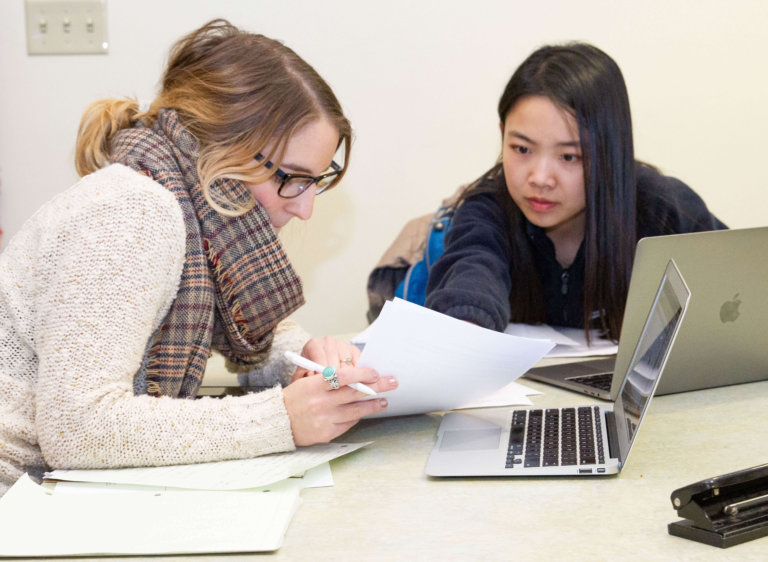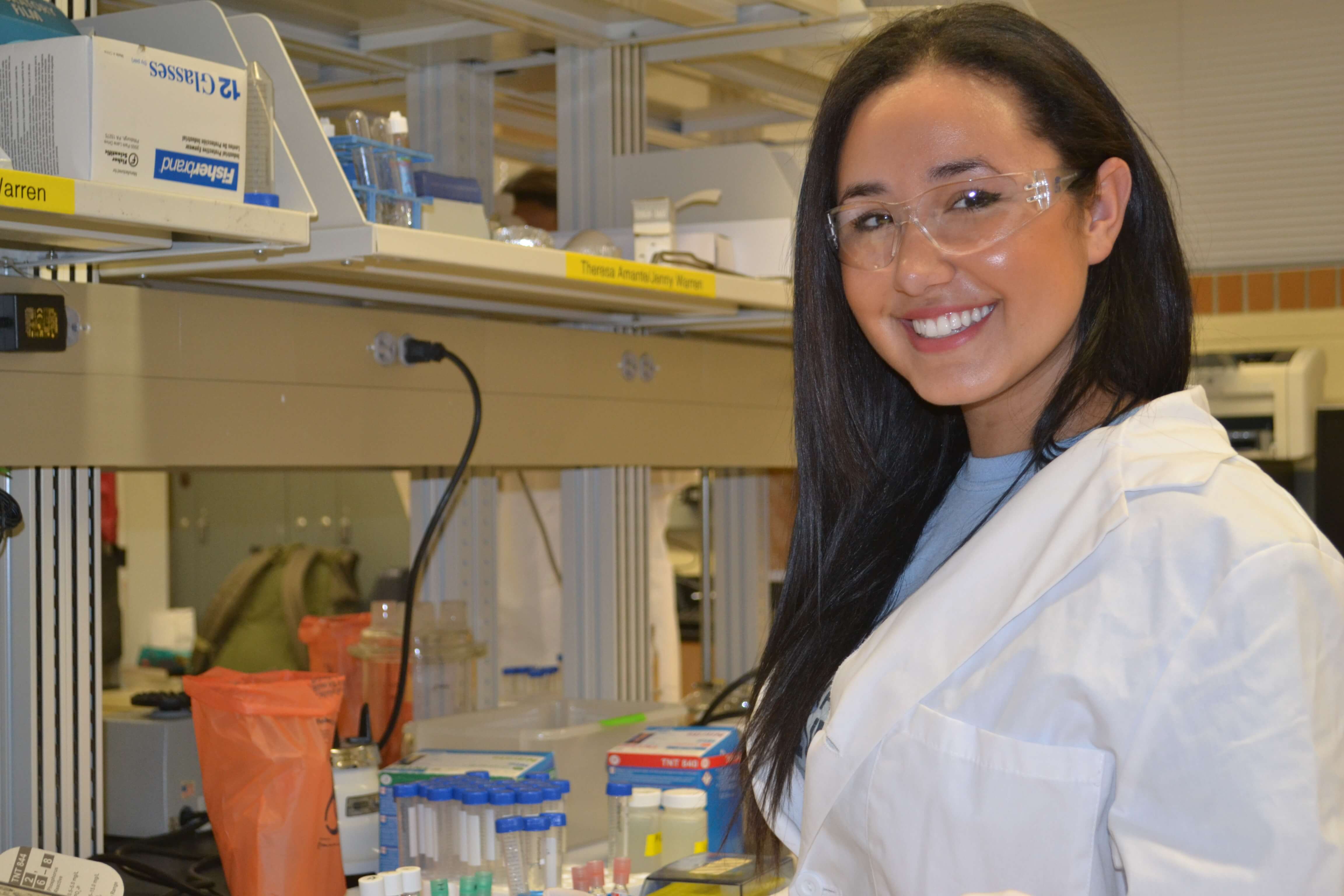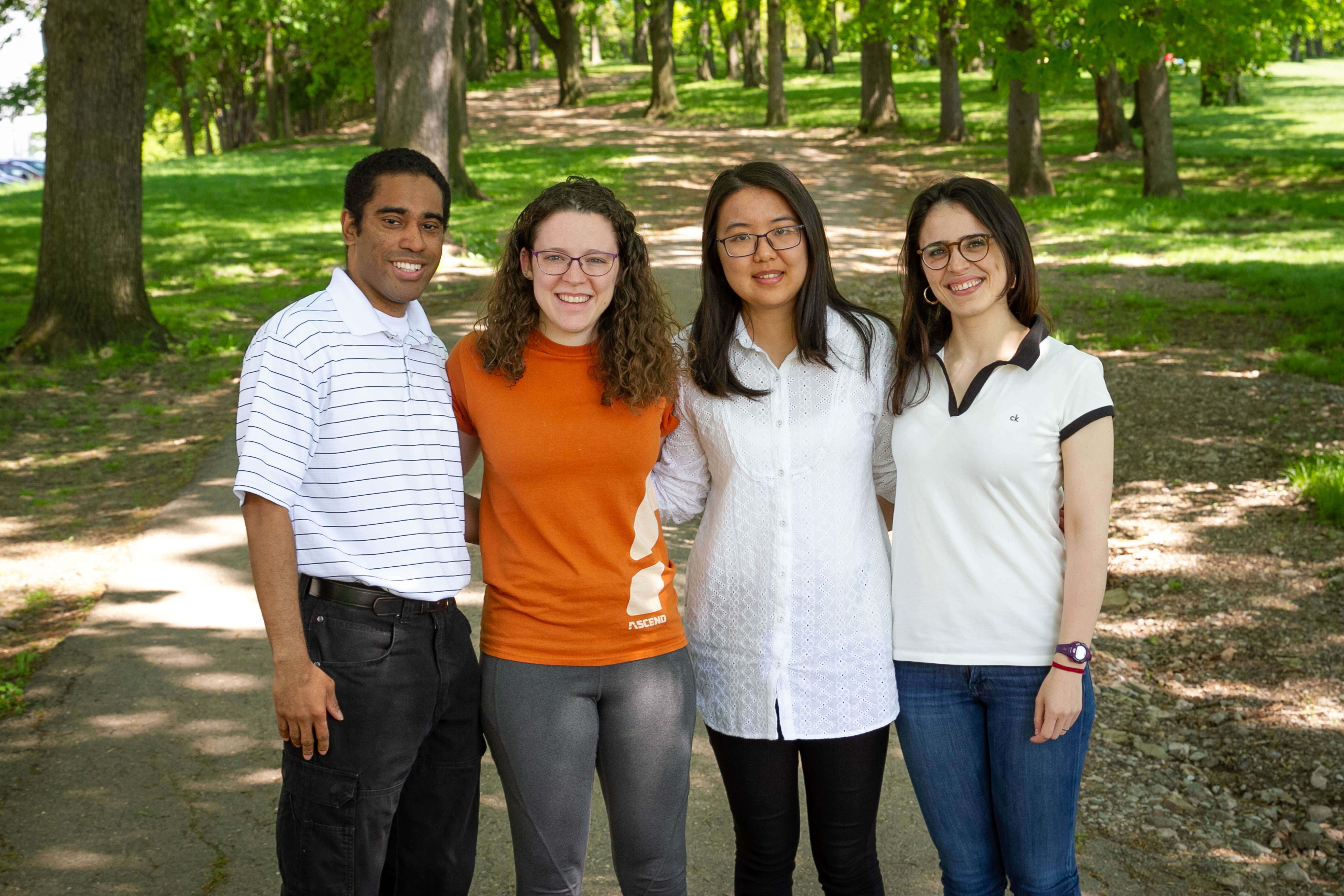
There are far too few women in STEM (that’s Science, Technology, Engineering and Mathematics). With this in mind, Eva Saravia, Rosalind Fox and Trisha Kothari all deserve a shoutout as pioneering women in STEM.
Saravia, an engineering management graduate, went on to become the vice president and only female senior executive at Bohemia Interactive Simulations, which trains military forces worldwide through simulation programmes.
Fox oversees one of the factories of John Deere, a major American manufacturer of farm machinery and industrial equipment. The holder of two engineering degrees and an MBA, she earned a high rep and helped build a partnership with the Society of Women Engineers which led to 500 female employees joining John Deere.
Last but not least, 23-year-old Kothari is the first female engineer of Affirm, a financial lending company, where she works as a coder. Prior to this, after getting her engineering and computer science degrees, she did many internships at both Google and LinkedIn.
With civilisation at the cusp of another industrial revolution and the climate crisis, the talents of these women in STEM have never been more crucial. If you aspire to follow in their illustrious and lucrative paths, consider starting your educational journey at these US universities:
Texas Southern University

Texas Southern University
Boasting a 150-acre campus, Texas Southern University (TSU) is one of the nation’s largest historically black universities. There’s enough room for everyone with a dream, hence its ability to accommodate 9,700 undergraduate and postgraduate students from across the globe. To ensure learners from near and far feel at home, the university ensures its lineup of experts, student organisations and educational offerings remain just as diverse.
Located on the first floor of TSU’s well-stocked Technology Building, the Department of Engineering stays true to the university’s values by offering robust curricula that are open to all.
Two stand out for their ability to meet 21st-century demands: the BS in Civil Engineering which capitalises on the strength of its faculty to offer environmental, structures, transportation and geotechnical related courses as well as the BS in Electrical and Computer Engineering.
Most Civil Engineering courses combine lecture and lab work to guarantee that students get a fulfilling and rich educational experience. Pair this with required internships and co-ops, and students are set to expand their knowledge, experience and industry contacts, as well as focus and solidify their strengths, goals and career paths before graduation.
With these features, it is little wonder that engineering programmes here lead to outstanding outcomes. They were designed to develop professionals able to identify, formulate and solve engineering problems by applying principles of engineering, science and mathematics. In light of our world’s need for more globally-responsible engineers, both programmes also prime learners to hone the skills needed to recognise ethical and professional solutions to their respective challenges. Furthermore, to ensure students graduate ready to contribute, courses explore engineering solutions in global, economic, environmental and societal contexts.
Every aspiration is welcomed here. The Department of Engineering offers equally-relevant undergraduate programmes that cover Electronics Engineering Technology, Computer Engineering Technology and Civil Engineering Technology. Click here to take your pick.
University of Kansas: School of Engineering

University of Kansas
The University of Kansas (KU) School of Engineering educates future engineers, pioneers new technologies and develops solutions to world problems.
It is committed to increasing the number of diverse engineers including women and underrepresented minorities. IHAWKe is the umbrella organisation for diversity and women’s programmes at the KU School of Engineering which helps students connect with others, change the world and conquer their classes.
Aspiring female engineers can evolve into tomorrow’s industry leaders through its 12 undergraduate, 19 master’s and 11 doctoral degree programmes. KU’s BSc in Mechanical Engineering is a four-year programme that focuses on engineering design and analysis in mechanical, thermal, fluids, and energy systems. The curriculum integrates engineering science, analysis, and design and teaches students how to design and manage the construction, operation and maintenance of machines used in many industries.
The MSc in Mechanical Engineering dives deeper and explore areas of studies such as Biomechanics and Biomaterials; Computational Mechanics and Mathematics of Computations; Thermal-Fluid Systems and Heat Transfer; and Mechanical Design, Manufacturing, and Microprocessor Applications.
In this programme, advanced mechanical engineering skills will be developed and students are guided by experts in fluid mechanics, turbulence and biomechanics. Students graduate with the skills and knowledge to design and build tomorrow’s machines and systems from small scale devices to air and spacecraft.
Carnegie Mellon University: Department of Civil and Environmental Engineering

Carnegie Mellon University
Of the US engineering schools popular among international students, the Department of Civil and Environmental Engineering (CEE) at Carnegie Mellon University (CMU), Pennsylvania is always 10 steps ahead. CEE possesses the expertise and facilities to prepare students for the new and emerging problems of tomorrow. Whether it’s through building intelligent infrastructure systems or engineering more resilient materials, this is where innovative engineers find the avenue to maximise their impact on the fast-transforming world.
Dynamic academic programmes await the curious learner at CMU, from the undergraduate degrees in environmental engineering and civil engineering all the way to postgraduate programmes in civil and environmental engineering. Master’s students may choose from a wide variety of concentrations, including but not limited to Smart Structures, Climate Change Adaptation, as well as Mechanics, Data Science, and Materials. Beyond these, there are also integrated and joint, dual degree programmes.
As a student-centred department, CEE faculty members and staff are quick to respond and adapt to student needs. Departmental support extends to each learning pathway, encouraging a collaborative culture both inside and outside the classroom. You can therefore look forward to working with brilliant individuals from other departments, which will enrich your education and research while equipping you for the future world of work. Check out the official website to learn more.
University of Mary
The School of Engineering at the University of Mary prepares students for all aspects of their careers. Its mission is to nurture highly competent professionals with advanced knowledge in their chosen field, communication and collaboration skills and ethical leadership rooted in Benedictine values.
As a school with a sole focus on undergraduate education and small class sizes, their hands-on approach to learning translates to student success, as seen from its high job and internship placement rates.
There are three engineering undergraduate programmes to choose from: Civil Engineering, Electrical Engineering and Mechanical Engineering. Here, students get to learn by real-life examples, make valuable connections and create a plan of study that works best for them.
“The best thing about the University of Mary engineering programme is the faculty’s knowledge and enthusiasm to help their students learn,” shares graduate Levi Clagett. “I learned relevant and useful skills that I’m already grateful for in the first year of my career. Professors passionately teach during the day and respond to emails at all times – morning, afternoon, and evening – to answer students’ questions.”
Facilities enhance this dynamic experience. The newly opened state-of-the-art facility at the School of Engineering was created with input from more than 35 top-level engineering companies. The facility includes a machine shop, a student design centre, a design fundamentals lab and multiple lab spaces dedicated to each major.
*Some of the institutions mentioned on this article are commercial partners of Study International







